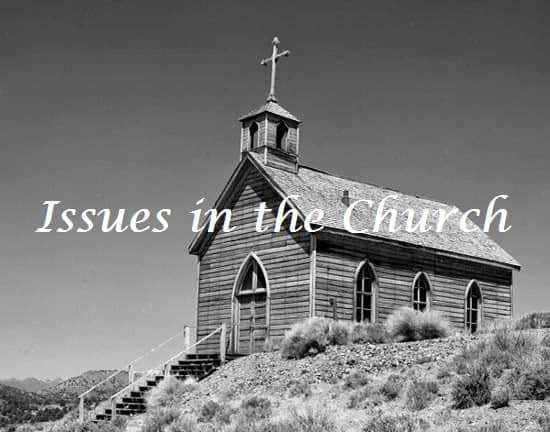⏱️ Estimated Reading Time: 5 min read
The old has passed and the new has arrived. The calendar has turned and we’ve entered into 2017. However, we know that the “new” will soon wear off and the fresh reminder of the “old” will define the plowing of pastoral ministry. If you’re like me you probably have New Year resolutions for your ministry, dreams of leading the church to be more evangelistic and seeing the ministry grow spiritually. But as I personally consider these new resolutions for 2017, I am reminded as a pastor of my old calling to “preach the Word” (2 Timothy 4:2). These “new” resolutions must be shaped by the “old” convictions of preaching.
The Inerrancy of Scripture
During the busy week, the pastor has planned, prepared, and preached to himself the message God has given them. It could be tempting to trust in your own strength and appeal to the desires of the people. But remembering that God has called you to preach, granting you gifts, and relying upon the Spirit you can step into the pulpit confident that God will speak through His Word. The Bible is clear that it is living and active (Hebrews 4:12), it will never return void (Isaiah 55:11), and it brings life (Psalm 119:25). The Word can do this because it is grounded in the very nature of God Himself. Since God is perfect, the Word cannot error. It is God exhaled (2 Timothy 3:16)!
Expository preaching rest in the truth that the Word is inspired and inerrant. Within myself, I have no wisdom or word to give. But God has given His inerrant Word to shape His people. He rules His church through His Word. In 2017 I pray that I am committed to the inerrant Word more than I was in 2016.
The Sufficiency of Christ’s Work
Preaching verse-by-verse through books of the Bible, in my opinion, is the best way to expose God’s people to His truth. Often times as expositors, though, we can get lost in the grammar of the paragraph and lose sight of the apex of the text—Christ and Him crucified. All of Scripture points to Jesus and His sufficient work. We preach because “it is finished” not because we have to add anything to His work. The sufficiency of Christ’s work should drive us to preach with boldness, knowing that God is working in His Son to reconcile the world to Himself (2 Corinthians 5:19).
The cross and resurrection of Jesus are the beginning and the end of all preaching. His work is complete and we declare it. He is the One who saves—preaching points to Him. As Paul said, “Him we preach” (Colossians 1:28). Regardless of the genre of the specific text, I’m preaching I must make the connection to the gospel. More than anything the people of God need the gospel of God each week. A mapped-out 2017 preaching calendar is worthless if the work of Christ isn’t explicit.
The Empowerment of the Spirit
Paul in his exhortation to the Corinthian church states that his preaching did not rest upon human wisdom but in the power of the Spirit (1 Corinthians 2:4-5). The Spirit is the One who takes the Word and applies it. Without the Spirit, preaching is nothing more than a series of historical facts and practical points.
The Spirit empowers the preacher to communicate the Word. The Spirit moves upon hearts when the Word is preached. Ultimately, the Spirit gives life through the Word. Therefore, the Word and the Spirit are inseparable. Older preachers such as Martyn Lloyd-Jones called this the unction of the Spirit.
Preaching week after week has solidified this conviction. I cannot preach with any authority or power unless the Spirit empowers me to do so. It’s been said that as Spurgeon ascended to the Metropolitan pulpit he would quietly pray “I believe in the Holy Spirit” over and over again. To have power in the pulpit we need the Spirit burning inside of us. Thinking back on 2016 I remember the many sermons that fell flat. I am praying that in 2017 I will trust the Spirit’s empowerment more.
The Importance of the Local Church
Preaching is not an individual act; rather, it is corporate. Preaching is for the church. The New Testament can only make sense of specific commands such as “love one another” and “forgive one another” if there is “another” to love or forgive. I would argue that the community is necessary for preaching and as a result preaching shapes the community.
We see this principle in Acts as the Spirit empowered Peter to preach, which resulted in the formation of the Church. In this way, we see the importance of the local church. Throughout the New Testament, the church is central to God’s plan in the world (Ephesians 2:19-21). But the church must be a Word-centered community. As preachers of Scripture it is a privilege to preach to the church, the people of God bought by Christ’s blood. I am asking the Lord to make my 2017 preaching “local church shaped.”
Darrell Johnson in his book The Glory of Preaching says,
Whenever a human being, Bible in hand, stands up before a group of other human beings, invites the gathered assembly into a particular text of the Bible and as faithfully as possible tries to say again what the living God is saying in the text, something always happens. Something transformative, empowering, life-giving happens.
In 2017, I pray this is true of my preaching ministry and yours as well. I hope these old convictions define our new ministry resolutions. May we consider our “call to preach” as an eternal task, standing on the edge of the already and the not yet, expositing the eternal Truth of Scripture in the New Year.
This post first appeared at Lifeway Pastors and is posted here with permission of the author.




